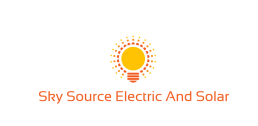
The Ultimate Guide to Finding Top Solar Equipment Suppliers
The booming solar industry offers a big chance for homes and businesses. It helps them find energy solutions that last. But, how well your solar system works depends on the equipment you use. It also depends on who sells it to you. Picking the wrong supplier can lead to systems that don’t work well. It can also cause expensive repairs. This means you might not get your money’s worth.
This guide will show you how to pick the best solar equipment suppliers. We will look at what makes a good supplier stand out. We will also cover the important parts they provide. You’ll learn how to check potential partners. This helps make sure your solar project succeeds. This applies from the first buy to how well it works over many years.
Understanding Solar Equipment: The Foundation of Your System
A good solar power system relies on specific hardware. Knowing these parts is key to a smooth solar project. Each piece plays an important role in making clean energy.
Key Components of a Solar Power System
Solar panels are the first step in making electricity. Monocrystalline panels are very efficient and sleek. Polycrystalline panels are more common and cost less. Thin-film panels are flexible but usually less efficient. You need to check a panel’s efficiency rating and how long it lasts.
Inverters change the power from your panels into power your home can use. String inverters work for a group of panels. Microinverters work for each panel alone. Power optimizers improve how well string inverters work. They all make sure you get the most power from your system.
Mounting systems hold your solar panels securely. These can be for different roof types, like sloped or flat. You can also install panels on the ground. Strong racking protects your panels from tough weather. It also keeps your system safe and stable.
Batteries and energy storage systems are becoming vital. They let you save extra solar power for later. This means you can use solar power even when the sun isn’t shining. Batteries also help you rely less on the main power grid.
Quality and Certifications: Ensuring Performance and Longevity
Verifiable quality standards are very important for solar gear. They show you can trust the products. Always look for these stamps of approval.
Industry standards and certifications prove product safety and performance. Look for UL, IEC, and CEC labels. These show the equipment meets tough quality tests. These certifications mean the products are safe and reliable.
The quality of materials affects how well equipment works and how long it lasts. For panels, this means silicon purity. For inverters, it is about the parts inside. Better materials usually mean better energy output and a longer lifespan for your system.
Warranties and guarantees protect your investment. A product warranty covers defects in the equipment itself. A performance warranty guarantees how much power your panels will make over time. A workmanship warranty covers the installation work. Always read these carefully to know what’s covered.
Navigating the Supplier Landscape: Key Considerations
Finding the right solar equipment supplier needs careful thought. Different types of suppliers exist. They each offer unique benefits. Your project’s needs will help you choose.
Types of Solar Equipment Suppliers
The solar supply chain includes several business models. Knowing them helps you pick who to buy from. This choice can affect your costs and how you get parts.
Manufacturers are the companies that build the solar equipment. They make the panels, inverters, and other parts. Buying directly from them can sometimes get you the newest tech. It can also offer direct support.
Wholesalers and distributors buy large amounts of gear from manufacturers. Then, they sell it to installers or bigger projects. They often have many brands. They can also offer good prices due to bulk buying.
Online retailers sell solar equipment through their websites. They often have a wide range of products. They can be good for smaller projects or DIY setups. Prices might be competitive due to lower overhead.
Full-service integrators offer a complete package. They provide equipment, design the system, and handle installation. Sometimes, they even help with financing. This can be a simple option if you want one company to handle everything.
Geographic Reach and Logistics
Practical steps are key when you source solar equipment. Where your supplier is located matters. It affects how fast you get your items and what you pay.
Choosing between local, national, or international suppliers has pros and cons. Local suppliers might offer faster delivery and easier support. National or international suppliers might have a wider selection or better prices. Always consider shipping costs and delivery times.
You need to know if a supplier has enough stock. Check their inventory and how fast they can fill your orders. A good supplier can deliver parts quickly. This keeps your project on schedule.
Shipping and handling need careful planning. Solar equipment can be delicate. Think about how items are packaged. Make sure they are insured during shipping. This protects your investment from damage during transit.
Evaluating Solar Equipment Suppliers: A Due Diligence Checklist
Checking out potential solar equipment suppliers is crucial. You need to make sure they are reliable and trustworthy. A thorough check helps you avoid problems later.
Financial Stability and Reputation
You want a supplier who will be around for the long haul. Their financial health matters. This also means looking at their past work and how customers feel about them.
Research a company’s history and how long they’ve been in business. A long track record often means stability. Check their market presence; a well-known name can be a good sign. This helps you trust they will deliver.
Understanding a supplier’s financial health is important. You can check credit reports. Industry reviews can also give you hints. A financially stable company is less likely to have issues filling orders or honoring warranties.
Analyze feedback from other businesses and customers. Look for patterns in reviews, both good and bad. Consistent positive feedback suggests a reliable supplier. Repeated complaints should raise a red flag.
- Actionable Tip: Look for consistent patterns in reviews, both positive and negative.
Product Portfolio and Technical Support
You need a supplier who offers the right products. They also need to provide strong help. This ensures your project gets the right gear and good advice.
Does the supplier offer many products and brands? A diverse selection means they can meet different project needs. It also suggests they are not tied to just one type of product. This flexibility is a big plus for installers.
Do they have knowledgeable staff who can help with design? Can they troubleshoot problems? Good technical expertise and consultation are vital. They can save you time and money if issues pop up.
What is their process for handling broken products or returns? Strong after-sales support matters a lot. It shows a supplier cares about customer satisfaction even after the sale. Make sure their returns policy is fair and clear.
- Real-World Example: A supplier that offers detailed datasheets and application notes for their products is a good sign of technical competence.
Pricing, Payment Terms, and Contract Agreements
The financial side of working with a supplier is crucial. You need fair prices and clear terms. A solid contract protects both sides.
Compare quotes from many suppliers for the same equipment. This helps you get competitive pricing. Don’t always pick the cheapest option. Balance price with quality and service.
Understand their payment options and terms. Some suppliers offer discounts for paying early. Others have credit terms. Make sure their accepted payment methods work for you. Clear payment terms prevent surprises.
Review supplier agreements and contracts carefully. Pay attention to delivery schedules and warranty terms. Also, look at liability clauses. These legal documents define your relationship.
- Actionable Tip: Negotiate payment terms that align with your project cash flow.
Building a Strong Supplier Relationship: Beyond the Transaction
A good supplier relationship goes beyond buying and selling. It’s about trust and teamwork. This partnership can greatly help your business grow.
Communication and Responsiveness
Effective, ongoing communication is vital. It builds a smooth working relationship. Quick and clear responses show a supplier values your business.
Try to establish a dedicated contact person. This makes it easier to get answers to questions. A single point of contact simplifies all your inquiries and support needs. This builds a stronger connection.
How fast does the supplier answer questions or fix problems? Quick response times are a mark of good service. They show they are organized and care about your project’s timeline.
Make sure you get updates on your order. Good suppliers offer order tracking. They keep you informed about shipping and delivery. This transparency builds trust and helps you plan your work.
Reliability and Consistency
You need a supplier who performs dependably every time. Their consistency impacts your project schedule. It also affects the quality of your installations.
Does the supplier meet delivery dates every time? On-time delivery is key for keeping your projects on track. Delays from suppliers can cost you money and time.
Are the correct products and quantities delivered? Order accuracy is vital. Wrong items or missing parts can cause big headaches. A reliable supplier gets it right the first time.
Do new orders of the same equipment match the quality of past ones? Product consistency ensures your installations are uniform. You want to know you’re getting the same high standard every time.
- Expert Quote: “A reliable supplier is one who minimizes surprises and consistently delivers on their promises, allowing installers to maintain their own project schedules.”
Innovation and Future-Proofing
Consider how suppliers stay current in this fast-changing industry. An innovative supplier helps you stay competitive. They keep you updated on the newest tech.
Are they offering the newest advancements in solar technology? Innovative suppliers bring new products to the market. This lets you offer better, more efficient solutions to your customers.
Do they share information about market shifts and new technologies? Suppliers who share industry trends help you plan for the future. They act as a valuable source of market insight.
Understand their connections with manufacturers. How well can they handle supply chain issues? Strong partnerships and resilience mean they can get you the parts you need, even when things are tough. The global solar energy market is projected to reach $493.5 billion by 2030. This highlights the need for suppliers who can scale.
Conclusion: Securing Your Solar Success
Thoroughly checking solar equipment suppliers is key for project success. This step impacts how your system performs, its cost, and how long it lasts. Take the time to do your homework.
Prioritize suppliers who offer high-quality, certified products. They should also show strong technical support. Look for those who keep their business dealings open and honest. These qualities build a strong foundation.
Building a reliable, open, and forward-thinking relationship with your supplier is an investment. It pays off in the long run. This partnership helps ensure your solar business thrives for years to come.

Recent Comments